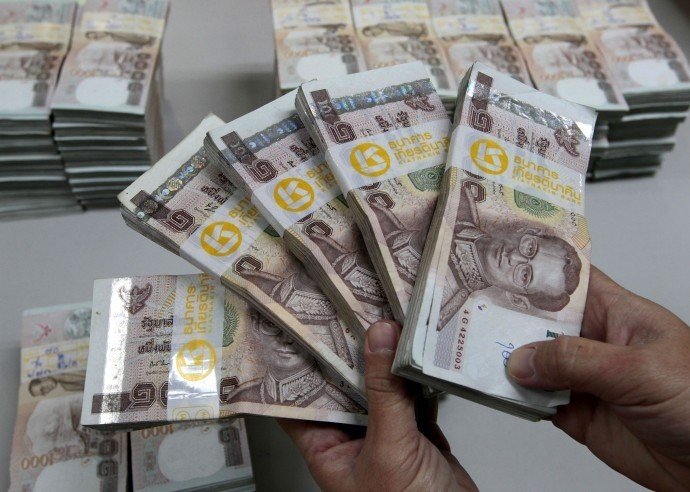Thailand’s central bank is now ready to take additional steps to rein in the currency, Deputy Governor Mathee Supapongse said.
The Bank of Thailand and the government remain concerned about the baht’s appreciation and continue to discuss the issue, Mathee told reporters in Bangkok Tuesday.
The bank’s foreign-exchange intervention has helped to boost reserves and curb the baht, he said.
The Bank of Thailand has taken several steps in recent months to limit gains in the baht after it surged almost 9% against the dollar in 2019, the best performer among Asian currencies.
The strong currency has hurt the nation’s exports, prompting calls for further action from the government.
Mathee said it’s not the central bank’s job alone to manage the baht.
“The central bank is like the last door to defend the baht,” he said. “The first door is the private sector and the second door is the government. We all need to help out.”
If the central bank is left to solve the baht problem on its own, “they will need to use strong medicine to handle it,” said Mathee. “And it may not benefit much. If all parties help, they can use milder measures which will benefit all parties.”
The baht’s sharp moves during the year-end to new year holiday seasons might have prompted renewed aggression from the Thai central bank on stemming gains and intervening in the market, said Masakatsu Fukaya, an emerging-market currency trader at Mizuho Bank Ltd.
That could mean slight downward pressure on the currency in the near term, Fukaya said.
The baht was little changed at 30.250 per dollar as of 11:55 a.m. in Bangkok after weakening to as low as 30.323 earlier.
Efforts by the authorities to curb the strength in the baht were helped by the release of the U.S. report on currency policies of major trading partners, showing Thailand narrowly avoided a watchlist designation.
The U.S. did note in the report that Thailand is closer to violating two of three criteria to make the monitoring list.
In response, Mathee said “we are not complacent” around how Thailand is being judged on dealing with the baht’s movements.
“We will continue to closely watch out and manage the currency in our capacity and conditions,” said Mathee, citing “many tools” to do so.
Separately, the BOT published a foreign-exchange code of conduct on its website, outlining ethical and governance practices for market participants.
Governor Veerathai Santiprabhob said last week the central bank will relax restrictions on capital outflows again, in an effort to ease upward pressure on the baht.
Those steps includes boosting the amount of proceeds exporters can hold overseas to $1 million.
Finance Minister Uttama Savanayana said Monday any steps authorities take to curb gains in the currency won’t disrupt the “market mechanism” of the baht.
Some of the steps already taken by the central bank include:
Interest rates cut twice last year to match a record-low 1.25%In July, measures were imposed to counter short-term inflowsIn November, rules on capital outflows relaxed
The government also plans to issue measures to boost imports on capital goods and machinery for investment to help reduce pressure on the baht.




